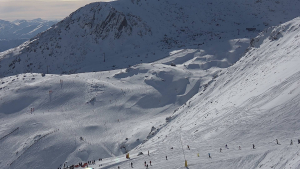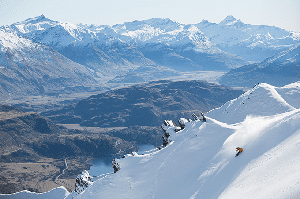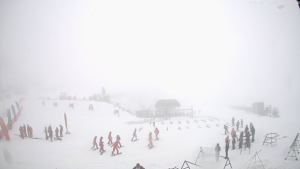U.S. Ski Industry Reports Record Visitation For 2022-2023 Season
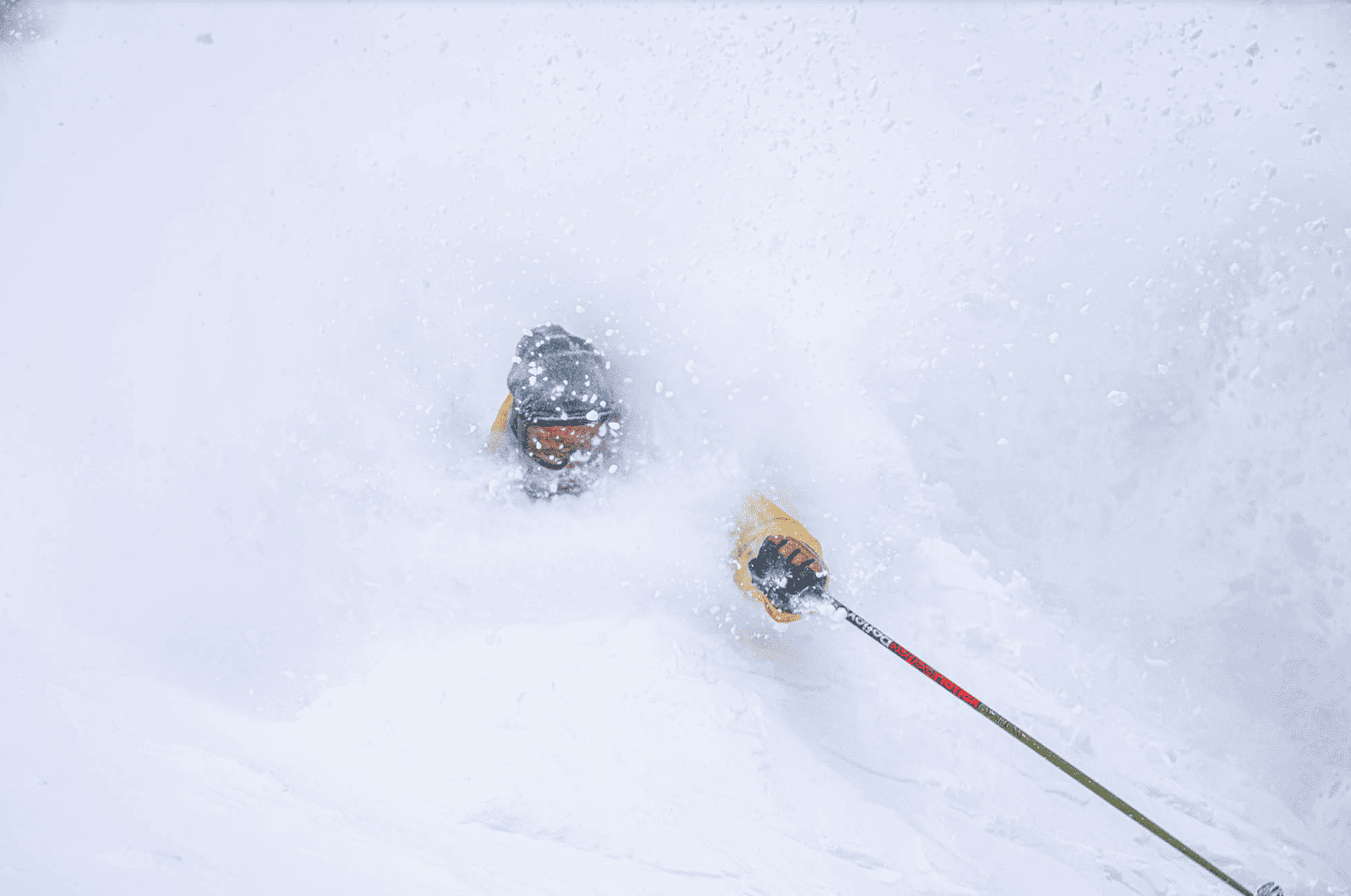
Mountainwatch | Press Release
LAKEWOOD, Colo. – Preliminary numbers from the National Ski Areas Association (NSAA) indicate record visitation at U.S. ski areas for the 2022-23 season, with a total of 64.7 million skier visits, a 6.6% increase over the previous season. A skier visit is recorded every time an individual uses a lift ticket or pass at a ski area. The number is preliminary as several ski areas have extended their seasons. NSAA will collect updated numbers as those ski areas close for winter operations.
NSAA has been tracking skier visits since the 1978-79 season; you can find historical visitation numbers here.
What the number means
Skier visits are a key performance indicator for the ski industry. Two consecutive seasons of record visitation signals that the U.S. ski industry is healthy, and that the demand for outdoor recreation is strong. Factors contributing to this record season include: a robust snow year in the Rockies and Pacific Southwest regions; growing options of season passes and frequency products; and an increased desire to get outside, especially among lapsed skiers who have returned to the slopes since the pandemic. The number of operating ski areas also jumped from 473 last season to 481 this season, another positive indicator. However, the growth in operating areas contributed only marginally to the overall increase.
Regional impacts
NSAA divides the country into six regions, with two regions having record skier visits. The Rocky Mountain region reported a record high number of skier visits for the second consecutive season, totalling 27.9 million. The Pacific Northwest region also finished with its best year on record, totalling 4.5 million. Other regions with increases in season-over-season skier visits were the Northeast and Pacific Southwest (3rd best year on record). Only two regions – the Southeast and Midwest – reported small decreases in skier visits compared to 2021-22.
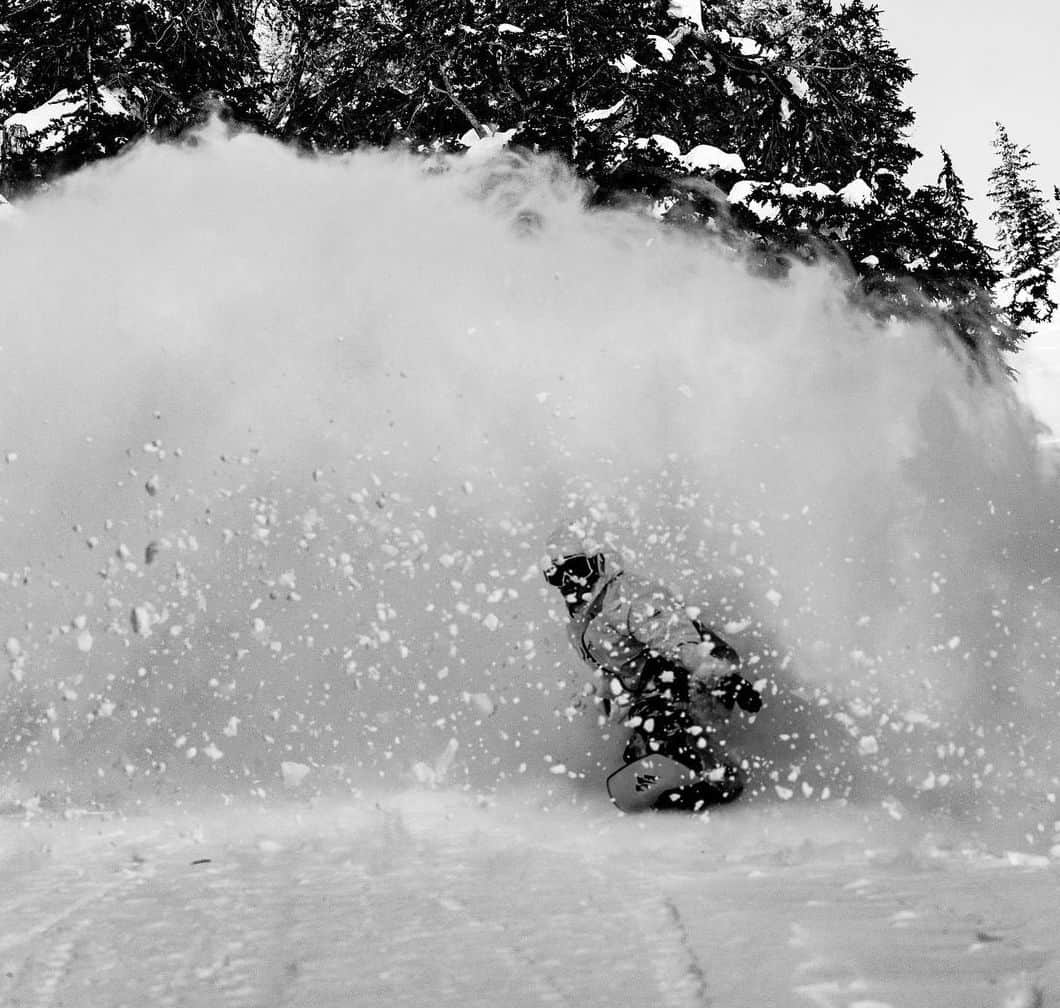
Snowfall
Historically, fluctuations in skier visit numbers could be correlated with snowfall; more snow generally meant more skier visits. This season was no different, with record snow totals at western ski areas contributing to increased visitation frequency, despite weather-related travel challenges. Average snowfall at ski areas nationally totalled 224”, a 30% increase over the 10-year average of 173”. As a result, the average length of season was 116 days, an increase of six days over the previous season.
Capital investment
Capital investment by ski areas totalled $812.4 million in the 2022-23 season, a record high for the industry. The majority of capital expenditures was invested into lift infrastructure, with 63 new and 86 upgraded lifts installed at ski areas across the country. Last season, the average ski area invested nearly $26 per skier visit back into its operation, a significant increase over the previous three-season average of $15, especially given the increase in overall skier visits.
Season passes holding strong
For the fourth season in a row, season passes surpassed day tickets in share of skier visits. Season pass holders made up 50% of visits nationally, with standard day lift tickets claiming 33% of visits. The balance is claimed by frequency products, off-duty employees, complimentary products, etc.
Staffing
The ski industry is gradually recovering from last season’s staffing challenges, with only 60% of ski areas reporting being understaffed, down from 81% last season. The average number of positions left unfilled also decreased from last year’s high of 72 to an average of 39 positions this season. Average ski area wages increased 18% from the 2021-22 season, well outpacing the national average of 4.6%. Approximately half of all ski areas said they are planning to increase their workforce housing capacity.
The National Ski Areas Association (NSAA) is a trade association representing the business interests of ski area operators, industry suppliers and affiliated members. Formed in 1962, NSAA designs and supports ski industry initiatives and programs covering safety, sustainability and growth from its Lakewood, Colo., headquarters. Learn more about NSAA’s mission and programs at NSAA.org.
